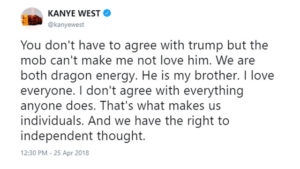My buddy John Hill works for Techstars as the VP of Network, go connect with him, he’s completely an awesome guy who will sit down and have a beer with you and talk about how to change the world for hours! Last week he got to meet the latest crop of Techstar startups and came away motivated with some great learnings.
Here are John’s takeaways from the newest Techstar startups:
1. Nothing beats hustle. Nothing.
2. The world is full of good ideas, but only a few will execute on them.
3. Relational capital is vital.
4. Networks matter. Surround yourself with those who can help you.
5. There are some wicked smart people in the world.
6. To build a great company you need help with funding, talent, and connections to business/industry to scale and the understanding of how to navigate each.
7. Suspend disbelief!
I’m drawn to each of the seven for different reasons but #2 jumps out because I witness this on a daily basis. There are two kinds of people in the world: those who execute and those who talk about executing. Hire those who execute. Understand that they are rare and you should overpay for this ‘skill’.
Do you notice nowhere on his list does he talk about failure. John is a motherfucking doer! He gets shit done. Techstars will only take a chance on startups led by people who will execute. John talks about ways to succeed not about just throwing caution to the wind and failing. The reality is most will fail, setting yourself up for success is key.
I love that he ends his list with “Suspend disbelief”. The world is a critic. Those who make it big have that special combination of John’s list. Great idea, ability to execute, the right network to make it happen, super smart, etc. What they also have is true belief! At the end of the day, you have to believe 1000% your idea is going to work. No part of you even questions that it won’t.
If it didn’t work you would be destroyed because your belief was so strong that you never saw it coming when it fails. That’s how most great ideas actually make it. You find a combination of all of these things and you put money and resources behind it.
These 7 learnings aren’t about how to make a startup successful. These are how you make anything successful that you’re working on.




